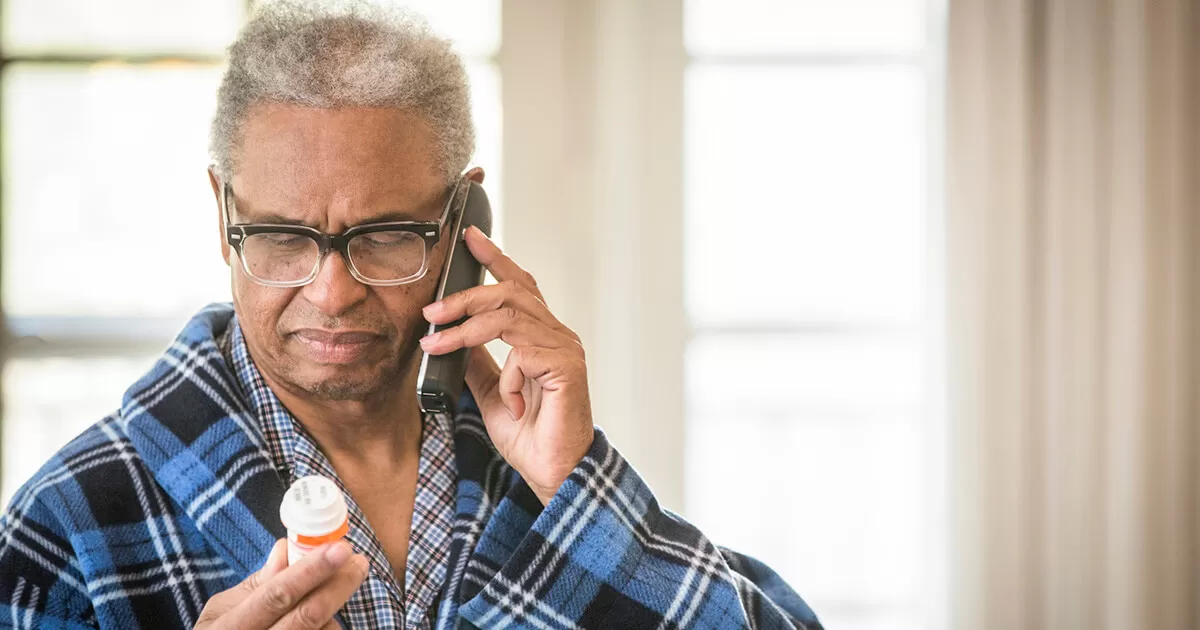10 Ways to Reduce Medication Errors

Medicines can help you feel better when you’re sick. But if used incorrectly, medicines can also cause harm. Medication errors, such as receiving the wrong therapy or using an incorrect dosage of a drug, can potentially lead to serious outcomes. You may be able to help reduce your risk for medication errors. Here are some tips to consider:
- Tell your doctor every medicine you’re taking. It’s one way to help prevent drug interactions between your medicines, which can be dangerous. Use this personal medication tracker to write down every prescription, over-the-counter drug, vitamin, and supplement you use. Then bring it with you to every appointment.
- Ask questions when you get a new prescription. Find out exactly what the drug is for, as well as the side effects it could cause. Make sure you know the exact name—both brand name and generic—before you leave the doctor’s office. Trying to decipher a doctor’s handwriting on a prescription can be challenging, even for pharmacists. Ask if the new medication will interact with any of the medicines you are already taking.
- Check prescriptions when you pick them up. Before leaving the pharmacy, look at the medicine bottles. Is there any difference between the name your doctor told you and what’s on the label? Is the dose the same? Do you understand how often to take the medicine? Do you know if the medicine interacts with any foods or other medicines? If you’re picking up a refill, open the bottle and check to see if the medicine looks different than normal. If you have any doubts at all, ask your pharmacist.
- Take medicine as prescribed or directed. Always read the labels on medications that you are using. For over-the-counter medicines, be sure to read the instructions on the package and follow them closely. If you have any questions, ask your pharmacist, or call your doctor’s office. Pharmacists and doctor’s clinical staff are trained to assist you in understanding the correct way to take specific medications. Use extra caution when giving medicine to children such as using measuring devices that come with the package (e.g., don’t use a kitchen spoon, don’t confuse eye drops for ear drops). Do not guess the medication dosage, but read the pediatric section of the label carefully. Also, never use any medication that is prescribed for someone else.
- Bring a family member or friend along to keep track. If you’re dealing with a medical issue—especially a serious one—that requires medication use, going with someone else to a doctor’s appointment can be a big help. Caregivers can take notes about the medications you will be taking, the correct dose, and the side effects you may expect.
- Tell your health care team about your allergies. If you’re about to undergo surgery or a medical procedure, tell the surgeon, anesthesiologist, nurse, dentist and any other health care provider about your medical allergies and severe reactions to anesthesia or other medications you have had—note that medication allergies and side effects to medication are not the same thing. Make sure they also know about all the medications you are currently taking. Remember to include your over-the-counter drugs, such as vitamins or pain relievers.
- Ask hospital providers about the medications and doses you are given. This is good to do each and every time during a hospital stay. Nowadays, hospital policy may require that nurses scan your identification bracelet before giving you medication, but asking can help ensure you’re getting the right medicines at the right dosages.
- Make sure one provider is in charge of your care. Have one person—such as a primary care provider—in charge of overseeing your care, including when you are in the hospital. Having one doctor in charge may help to prevent mistakes, such as multiple specialists unknowingly prescribing duplicate medicines or medicines that interact with each other.
- Don’t assume all providers know everything. Be sure to tell every doctor, nurse, and specialist new to your team about your health conditions, allergies and reactions to treatments. It’s possible that they might miss key information, so don’t be afraid to repeat yourself.
- Become an active member of your health care team. Participate in health care decision-making. Ask questions. Research all treatments prescribed to you and know your treatment options. Being more informed and involved can help you stay on top of your treatment plan and may even help to prevent medicine errors.
If you or someone you know experiences a serious reaction to a medicine, please contact your healthcare provider and report it to the U.S. Food and Drug Administration by calling 1-800-FDA-1088 or by visiting www.fda.gov/safety/medwatch/default.htm.
References
- 1. Agency for Healthcare Research and Quality. Five Steps to Safer Health Care. Accessed January 13, 2017.
- 2. Agency for Healthcare Research and Quality. 20 Tips to Help Prevent Medical Errors. Accessed January 13, 2017.
- 3. American Society of Hospital Pharmacists. ASHP Guidelines on Preventing Medication Errors in Hospitals. Accessed January 13, 2017.
- 4. National Institutes of Health. Medicines and Children. Accessed January 13, 2017.
- 5. US Food and Drug Administration. Strategies to Reduce Medication Errors: Working to Improve Medication Safety. Accessed January 13, 2017.
- 6. National Institutes of Health. Medication Errors. Accessed January 13, 2017.
- 7. National Institutes of Health. Help prevent hospital errors. Accessed January 13, 2017.





